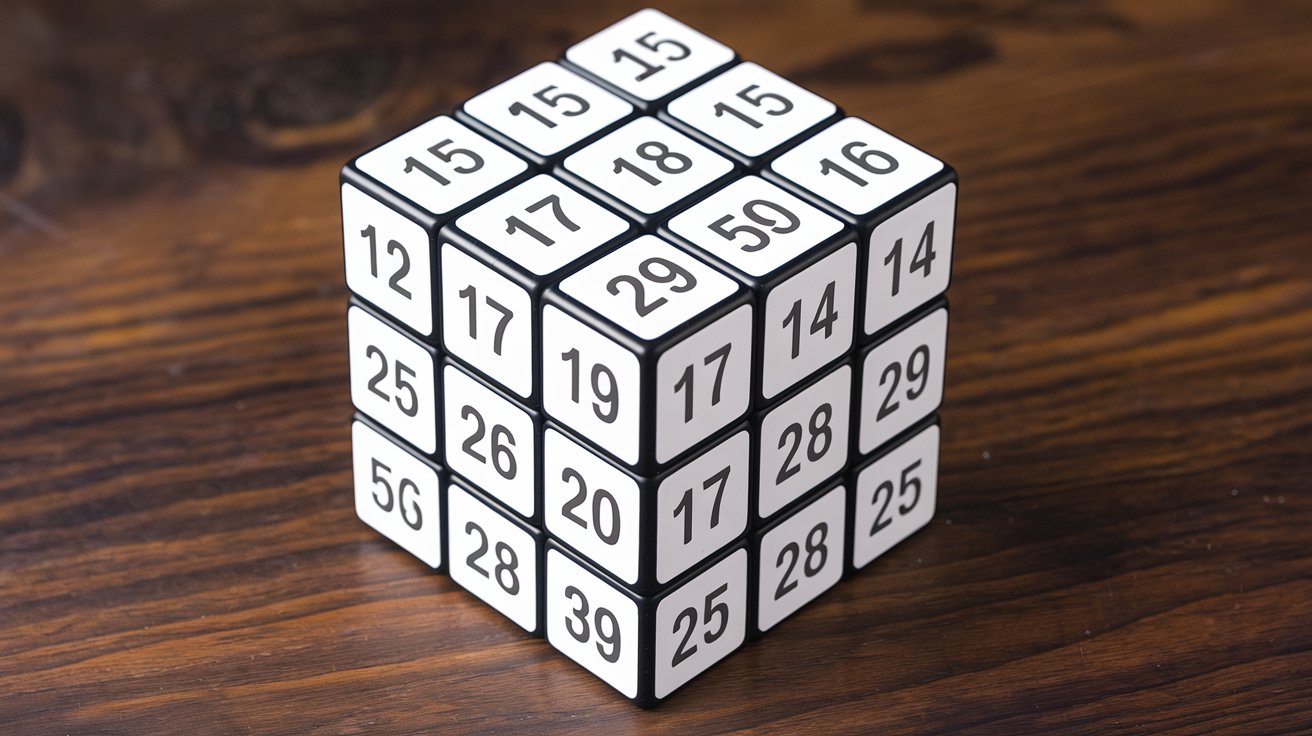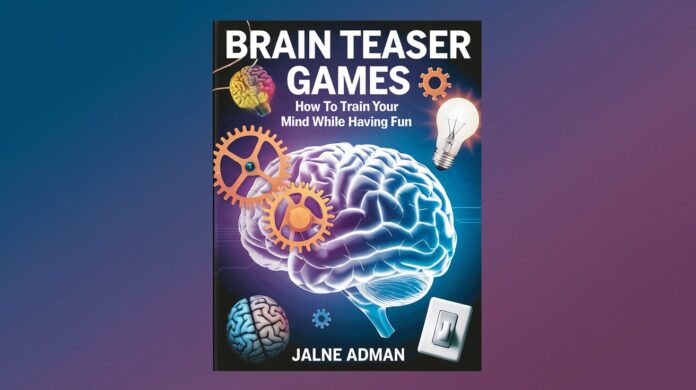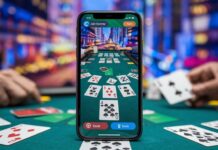In our digitally-driven world where endless scrolling and passive entertainment dominate our free time, brain teaser games offer a refreshing alternative that combines entertainment with cognitive benefits. These mentally stimulating puzzles and games do more than just pass the time—they sharpen your thinking, enhance your problem-solving abilities, and may even help maintain brain health as you age. Let’s explore how you can effectively train your mind while genuinely enjoying the process through various types of brain teasers and mental challenges.
The Science Behind Brain Training
How Brain Teasers Impact Cognitive Function
When you engage with a challenging puzzle or brain teaser, your brain doesn’t just passively process information—it actively creates new neural pathways and strengthens existing ones. This process, known as neuroplasticity, is fundamental to cognitive development and maintenance throughout life.
Research published in the Journal of Cognitive Enhancement suggests that regularly engaging in mentally challenging activities can lead to improvements in:
- Working memory capacity: Your ability to hold and manipulate information in your mind
- Processing speed: How quickly your brain can understand and respond to information
- Fluid intelligence: Your capacity to solve new problems without relying on prior knowledge
- Attention span: Your ability to focus on specific tasks without distraction
While playing brain games won’t necessarily increase your IQ by 20 points overnight, consistent mental exercise can lead to noticeable improvements in everyday cognitive tasks, from remembering shopping lists to making complex decisions at work.
The “Use It or Lose It” Principle
Neuroscientists often cite the “use it or lose it” principle when discussing brain health. Much like physical muscles, neural connections that aren’t regularly activated can weaken over time. Brain teasers serve as effective “mental workouts” that keep various cognitive pathways active and functional.
Dr. Denise Park, a renowned cognitive neuroscientist, explains: “Novel and complex activities are particularly important for brain health because they require concentrated effort and tap into multiple cognitive domains simultaneously.”
Types of Brain Teaser Games and Their Benefits
Logic Puzzles: Deduction and Reasoning
Logic puzzles like Sudoku, nonograms, and grid-based deduction games exercise your analytical thinking and systematic reasoning abilities.
Benefits:
- Strengthens deductive reasoning skills
- Improves pattern recognition
- Enhances methodical thinking
- Builds patience and persistence
Word Games: Linguistic Intelligence
From crosswords and anagrams to Scrabble and Boggle, word games target your verbal reasoning, vocabulary, and linguistic processing.
Benefits:
- Expands vocabulary
- Improves spelling
- Enhances verbal fluency
- Strengthens semantic memory
Visual-Spatial Puzzles: Dimensional Thinking
Jigsaw puzzles, tangrams, and 3D puzzles like Rubik’s Cube focus on your ability to mentally manipulate objects and understand spatial relationships.
Benefits:
- Enhances visual processing
- Improves spatial reasoning
- Develops strategic thinking
- Boosts hand-eye coordination
Real-World Application: The spatial reasoning skills developed through these puzzles are particularly valuable for fields like architecture, engineering, graphic design, and even surgery.
Memory Games: Recall and Recognition
Memory matching games, sequence recall challenges, and “N-back” tasks specifically target your ability to retain and retrieve information.
Benefits:
- Improves short-term memory
- Enhances information encoding
- Develops better recall strategies
- May help delay age-related memory decline
Interesting Fact: Studies with older adults have shown that those who regularly engage in memory-challenging activities tend to maintain better cognitive function and show fewer symptoms of dementia as they age.
Mathematical Puzzles: Numerical Reasoning

Number-based brain teasers like KenKen, mathematical riddles, and arithmetic puzzles strengthen quantitative reasoning abilities.
Benefits:
- Enhances numerical fluency
- Improves mental calculation speed
- Develops mathematical problem-solving strategies
- Builds logical thinking frameworks
Lateral Thinking Puzzles: Creative Problem-Solving
These unconventional puzzles often require you to think “outside the box” and approach problems from unexpected angles.
Benefits:
- Fosters creative thinking
- Breaks rigid thought patterns
- Improves cognitive flexibility
- Enhances perspective-taking abilities
Example Puzzle: “A man lives on the 10th floor of a building. Every morning he takes the elevator down to the ground floor to go to work. When he returns in the evening, he takes the elevator to the 7th floor and walks up the stairs for the remaining floors—except on rainy days, when he goes directly to the 10th floor. Why?”
(Solution: The man is short and can only reach the 7th-floor button. On rainy days, he uses his umbrella to reach the 10th-floor button.)
Digital vs. Physical Brain Teasers: Finding Your Perfect Match
The Rise of Brain Training Apps
With smartphones always within reach, brain training apps like Lumosity, Peak, and Elevate have made daily mental workouts more accessible than ever. These platforms offer advantages like:
- Personalized difficulty progression: Games automatically adjust to your skill level
- Progress tracking: Visual representations of your improvement over time
- Varied cognitive challenges: Different games target specific cognitive domains
- Convenience: Train anywhere, anytime, for short bursts of mental exercise
However, research on their effectiveness is mixed. While some studies show modest benefits in specific cognitive domains, transfer to real-world tasks remains a debated topic among neuroscientists.
The Enduring Appeal of Physical Puzzles
Despite the convenience of digital options, traditional physical brain teasers offer unique advantages:
- Reduced screen time: A welcome break from digital devices
- Tactile engagement: Additional sensory input that can enhance learning
- Social interaction: Many can be enjoyed with friends and family
- No distractions: No notifications or apps competing for your attention
From classic wooden puzzles and metal disentanglement challenges to modern escape room kits, physical brain teasers continue to engage minds of all ages.
How to Build an Effective Brain Training Routine
Variety Is Key
The most effective brain training approaches involve diverse challenges rather than repeating the same type of puzzle. This variety ensures you’re developing multiple cognitive domains and prevents the plateau effect that can occur when your brain masters a particular challenge.
Create a weekly schedule that incorporates:
- Logic-based puzzles (Monday)
- Word games (Tuesday)
- Visual-spatial challenges (Wednesday)
- Memory exercises (Thursday)
- Mathematical puzzles (Friday)
- Creative thinking tasks (Weekend)
The 20-Minute Rule
Research suggests that short, focused sessions are more effective than marathon puzzle-solving. Aim for about 20 minutes of concentrated brain training daily—long enough to challenge yourself but short enough to maintain peak mental engagement throughout.
Progressive Challenge
For brain teasers to remain effective, they must continue to challenge you. As psychologist Lev Vygotsky’s “zone of proximal development” theory suggests, optimal cognitive growth occurs when challenges slightly exceed your current abilities.
Look for puzzles and games with:
- Adjustable difficulty levels
- Progressive complexity
- New variations of familiar formats
- Time constraints that can be gradually reduced
Consistency Over Intensity
Regular engagement with brain teasers produces better results than occasional intensive sessions. Even five minutes of daily mental challenge is more beneficial than an hour-long session once a week.
Brain Teasers for Different Age Groups
For Children: Building Cognitive Foundations
Brain teasers for younger minds should focus on fundamental skills while maintaining high engagement:
- Pattern recognition games like “Spot the Difference”
- Simple logic puzzles like “Rush Hour Jr.”
- Memory matching card games
- Basic riddles and word puzzles
For Adults: Maintaining Cognitive Peak
Working-age adults benefit from brain teasers that:
- Counterbalance work-related cognitive patterns
- Reduce stress through focused mental engagement
- Challenge executive function and decision-making
- Offer quick mental breaks during busy days
Try incorporating brain teasers into your lunch break or commute for a refreshing change from work-related thinking.
For Seniors: Preserving Cognitive Health
For older adults, regular engagement with brain teasers can be particularly valuable:
- Crosswords and word searches maintain verbal fluency
- Jigsaw puzzles preserve visual-spatial abilities
- Card games like bridge combine memory, strategy, and social interaction
- Learning new puzzle types creates novel neural connections
Research Insight: The Advanced Cognitive Training for Independent and Vital Elderly (ACTIVE) study found that cognitive training in older adults produced benefits that persisted for up to 10 years.
Social Brain Training: Making It Fun
Puzzle Parties and Game Nights
Transform brain training into social entertainment by organizing:
- Escape room adventures with friends
- Board game nights featuring strategy games like Chess, Go, or modern options like Pandemic
- Trivia competitions that combine knowledge recall with social bonding
- Collaborative puzzle-solving challenges
The added element of social interaction not only makes brain training more enjoyable but also introduces components of cooperative problem-solving and communication.
Online Communities and Competitions
For those who enjoy competitive elements:
- Join online puzzle-solving communities
- Participate in global competitions like the World Puzzle Championship
- Engage in daily challenge communities for games like Wordle or crosswords
- Share and discuss solutions on forums and social media groups
Beyond Entertainment: Real-World Benefits
Professional Applications
The cognitive skills developed through brain teasers translate to numerous professional advantages:
- Enhanced problem-solving: Approaching work challenges from multiple angles
- Improved attention to detail: Catching errors and inconsistencies
- Better stress management: Using focused mental activities as stress-reduction techniques
- Increased mental stamina: Maintaining concentration during long meetings or projects
Many leading companies, including Google and Microsoft, incorporate puzzle-solving into their interview processes precisely because these skills transfer to workplace performance.
Personal Development Benefits
Beyond specific cognitive skills, regular engagement with brain teasers can foster broader personal growth:
- Perseverance: Learning to work through challenging problems
- Self-confidence: Building trust in your mental abilities
- Growth mindset: Embracing challenges rather than avoiding them
- Metacognition: Becoming more aware of your thinking processes
Getting Started: Your Brain Training Journey
Begin With Your Interests
The most effective brain training is the kind you’ll actually do consistently. Start with puzzles and games that naturally appeal to you:
- If you love words, try a daily crossword or word game
- If you’re mathematically inclined, explore number puzzles
- If you enjoy hands-on challenges, invest in physical puzzle sets
- If competition motivates you, find multiplayer brain games
Start Simple and Progress Gradually
Cognitive research shows that success experiences are crucial for building the motivation to continue. Begin with easier puzzles where you can experience the satisfaction of solving them, then gradually increase the difficulty as your skills improve.
Track Your Progress
Keeping a simple journal of your brain teaser activities can be remarkably motivating:
- Note which puzzles you’ve completed
- Record your completion times
- Reflect on strategies that worked well
- Celebrate improvements in specific skills
Conclusion: A Lifetime of Mental Fitness
Brain teaser games offer that rare combination of immediate enjoyment and long-term benefit. Unlike many “good for you” activities that require willpower to maintain, quality brain teasers provide intrinsic motivation through the satisfaction of solving challenges and visible improvement over time.
Whether you’re looking to sharpen specific cognitive skills, maintain mental agility as you age, or simply enjoy more meaningful entertainment, the world of brain teasers offers endless possibilities. From ancient puzzles like the Tower of Hanoi to cutting-edge digital brain training platforms, there’s truly something for every preference and cognitive style.
Remember that the best brain training routine is one that you’ll stick with consistently. By finding puzzles and games that genuinely engage you, you’re not just training your brain—you’re enriching your life with challenges that stimulate curiosity, creativity, and cognitive growth.
So the next time you reach for your phone to scroll mindlessly, consider opening a brain teaser app instead. Your future self—with a sharper, more agile mind—will thank you.
What’s your favorite type of brain teaser? Share your experiences and recommendations in the comments below!

Zareb Saleh is a journalist at Gulf Today and a ghostwriter for Gameoholic, specializing in gaming, technology, and digital culture. With a keen eye for industry trends, he delivers insightful stories that engage and inform readers.




